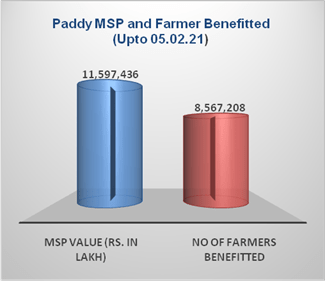ICAR-CIFA starts first ‘Ornamental Aquaculture Field School’ in West Bengal
The school envisages empowering over 500 ornamental fish farmers in 20 nearby villages of North Bengal.
Sagar Mehra, Joint Secretary (Inland Fisheries & Administration), Department of Fisheries, Ministry of Fisheries, Animal Husbandry & Dairying, Government of India inaugurated the “Ornamental Fish Farmer Field School” of the ICAR-Central Institute of Freshwater Aquaculture, Bhubaneswar, Odisha. The Field School has been established at the Fish Farm of Shri Bhagirath Roy of Prabhupara Village, Sadar Block, Jalpaiguri, West Bengal.
In his inaugural address, Mehra applauded the Institute’s efforts for helping the farmers of the remote North Bengal in adopting the scientific aqua-farming system. Dr. S.K. Swain, Director, ICAR-CIFA, Bhubaneswar, Odisha urged the farmers and farm women for taking-up Ornamental Fish Farming. He also highlighted about the popularity of the AFFS piloted by the Institute in Odisha, West Bengal and Chhattisgarh.
It is a unique Farmer Field School that has been established by a group of ICAR-CIFA Scientists for the farmer-farmer learning and dissemination of ornamental fish culture technique for the first time in the country. The school envisages empowering over 500 ornamental fish farmers in 20 nearby villages of North Bengal contributing greatly to the extension and advisory services delivery.
Around 50 Scheduled Caste farmers were distributed a packet of Ornamental Fish Seed (Sword-Tail, Redcap, Molly, Gold Fish, etc.) during the occasion. The training programme registered total participation by 120 farmers and farm women.
The school envisages empowering over 500 ornamental














